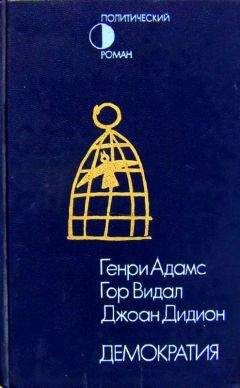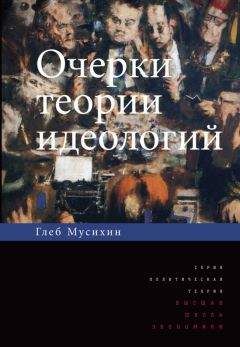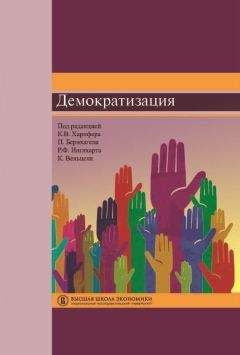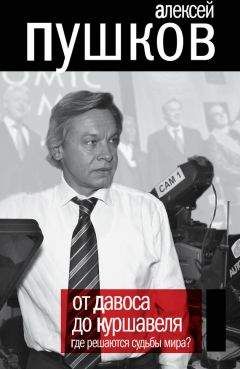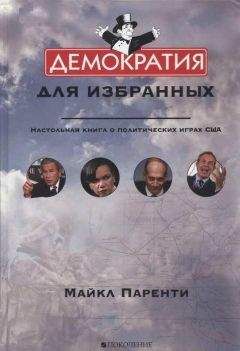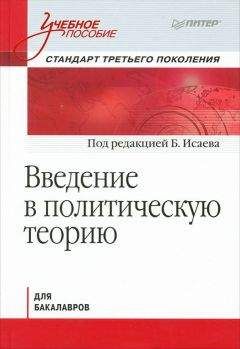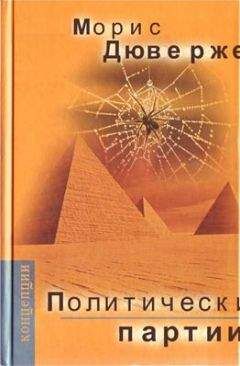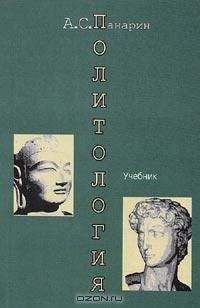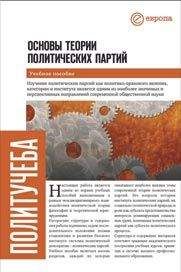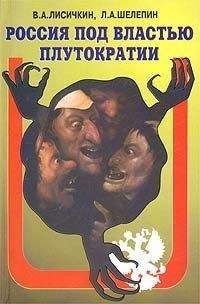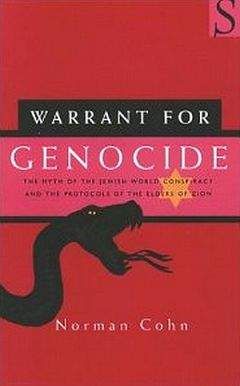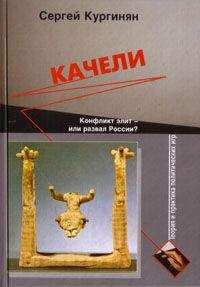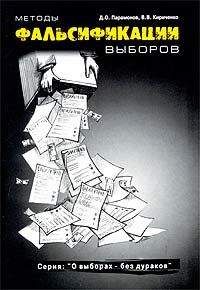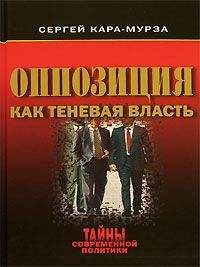Чарльз Эндрейн - Сравнительный анализ политических систем
Скачивание начинается... Если скачивание не началось автоматически, пожалуйста нажмите на эту ссылку.
Жалоба
Напишите нам, и мы в срочном порядке примем меры.
Описание книги "Сравнительный анализ политических систем"
Описание и краткое содержание "Сравнительный анализ политических систем" читать бесплатно онлайн.
Когда мы смотрим на политическую карту мира, то вряд ли нам приходит в голову мысль провести скрупулезный анализ всего многообразия существующих на Земле политических систем. Эту сложную, но выполнимую задачу поставил в своей книге профессор Ч. Эндрейн. Он не только сравнил различные политические системы, выявил общее и особенное в их функционировании, но и рассмотрел роль элит, групп и отдельных индивидуумов в проведении политического курса. Книга, пользующаяся большой популярностью в странах Запада, ныне станет доступна и нашему читателю, постоянно ощущающему потребность в учебной литературе по политическим наукам. Ее издание рекомендовано Российской ассоциацией политических наук.
Издание осуществлено при содействии Отдела по вопросам печати и культуры Посольства США
21
Robert Redfield, «The Folk Society», American Journal of Sociology 52 (January 1947): 293–308; Aidan Southall, «Stateless Society», International Encyclopedia of the Social Sciences, vol. 15(NewYork: Macmillan, 1968), 157–68; Gerhard Lenski and Jean Lenski, Human Societies: An Introduction to Macrosociology, 5th ed. (New York: McGraw–Hill, 1987), 97–129; Piotr Chmielewski, «The Public and the Private in Primitive Societies», International Political Science Review 12 (October 1991): 267—80.
22
См.: Richard B. Lee, «Politics, Sexual and Non–Sexual, in an Egalitarian Society», Social Science Information 17, no. 6 (1978): 871–95; Richard Borshay Lee, The .'Kung San Men, Women, and Work in a Foraging Society (Cambridge, England: Cambridge University Press, 1979), особ. 116–57, 333–461; Lorna Marshall, «The !Kung Bushmen of the Kalahari Desert», in: Peoples of Africa, ed. James L. Gibbs, Jr. (New York: Holt, Rinehart and Winston, 1965), 243–78; Lorna Marshall, «!Kung Bushman Bands», in: Comparative Political Systems: Studies in the Politics of Preindustrial Societies, ed. Ronald Cohen and John Middleton (Garden City, NY: The Natural History Press, 1967), 15–43; Lorna Marshall, The /Kung of Nyae Nyae (Cambridge, MA: Harvard University Press, 1976); Colin M. Turnbull, Man in Africa (Garden City, NY: Anchor Books, 1977), 159–66; Richard Katz, «Education as Transformation: Becoming a Healer among the IKungandthe Fijians», Harvard Educational Review 51 (February 1981): 57–78; Richard Katz, Boiling Energy: Community Healing among the Kalahari Kung (Cambridge, MA: Harvard University Press, 1982); Robert J. Gordon, The Bushman Myth: The Making of a Namibian Underclass (Boulder, CO: Westview Press, 1992); Robert K.. Hitchcock and John D. Holm, «Bureaucratic Domination of Hunter–Gatherer Societies: A Study of the San in Botswana», Development and Change 24 (April 1993): 305–38.
23
Английское название племени Ibo в настоящее время преобразовано в Igbo. — Прим. перев.
24
Анализ политической системы ибо см. в: Daryll Forde and G. I. Jones, The Ibo and Ibibio–speaking Peoples of South–Eastern Nigeria (London: International' African Institute, 1950); M. M. Green, Ibo Village Affairs (New York: Frederick A. Praeger, 1964); M. M. Green, Land Tenure in an Ibo Village in South–Eastern Nigeria (London: P. Lund, Humphries, and Company, 1941); H. Kami Offonry, «The Strength of Ibo Clan Feeling», West Africa 35 (May 26, 1951): 476, (June 2, 1951): 489–90; Mazi Njaka, Igbo Political Culture (Evanston, IL: Northwestern University Press, 1974): Ikenna Nzimiro, Studies in Ibo Political Systems (London: Frank Cass, 1972); S. N. Nwabara, Iboland: A Century of Contact with Britain, 1860–1960 (Atlantic Highlands, NJ: Humanities Press, 1978), 15–43; C. N. Ubah, «Changing Patterns of Leadership among the Igbo 1900–1960», Civilisations 37, no: 1 (1987): 127–57.
25
Simon Ottenberg, «Ibo Receptivity to Change», in Continuity and Change in African Cultures, ed. William R. Bascom and Melville J. Herskovits (Chicago: University of Chicago Press, 1959), 130–43; James S. Coleman, Nigeria: Background to Nationalism (Berkeley: University of California Press, 1958), 23–31, 332–43; David E. Apter, The Politics of Modernization (Chicago: University of Chicago Press, 1965), 116–21.
26
См.: Nnamdi Azikiwe, Economic Reconstruction of Nigeria (Lagos, Nigeria: African Book Company, 1943), 8,42, 50; Nnamdi Azikiwe, Renascent Africa (Accra, Ghana: The Author, 1937), 264, 270; Nnamdi Azikiwe, Zik:A Selection from the Speeches of Nnamdi Azikiwe (London: Cambridge University Press, 1961), 98; Richard L. Sklar, Nigerian Political Parties: Power in an Emergent African Nation (Princeton, NJ: Princeton University Press, 1963), 230; Charles F. Andrain, «Democracy and Socialism: Ideologies of African Leaders», в: Ideology and Discontent, ed. David E. Apter (New York–The Free Press of Glencoe, 1964), 181–82.
27
Charles F. Andrain, Political Change in the Third World (Boston: Unwin Hyman 1988), 215–45.
28
Гиллермо О'Доннел (Guillermo A. O'Donnell) ввел термин «бюрократическое авторитарное» правление. См. след. работы этого автора: Modernization and Bureaucratic–Authoriarianism: Studies in South American Politics (Berkeley: Institute of International Studies, University of California, Berkeley, 1973); «Reflections on thePatterns of Change in the Bureaucratic–Authoritarian State», Latin American Research Review 13, no. 1 (1978): 3—38; «Tensions in the Bureaucratic–Authoritarian State and the Question of Democracy», in The New Authoritarianism in Latin America, ed. David Collier (Princeton, NJ: Princeton University Press, 1979), 285—318; Bureaucratic Authoriarianism: Argentina, 1966—1973, in Comparative Perspective, trans. James McGuire (Berkeley: Universiry of California Press, 1988). See too Fernando Henrique Cardoso, «On the Characterization of Authoritarian Regimes in Latin America», in The New Authoritarianism in Latin America, 33—57; Juan J. Linz, «Totalitarian and Authoritarian Regimes», in Handbook of Political Science, vol. 3, ed. Fred I. Greenstein and Nelson W. Polsby (Reading, MA: Addison–Wesley, 1975), 175–357, esp. 264–350.
29
Daniel Chirot, Social Change in the Modern Era (San Diego, CA: Harcourt Brace Jovanovich, 1986), 208–22, 247–61; Bruce Russett and Harvey Starr, World Politics: The Menu for Choice, 4th ed. (New York: W. H. Freeman, 1992), 403–37; Ian Anthony, Agnes Courades Allebeck, Gerd Hagmeyer–Gaverus, Paolo Miggiano, and Herbert Wulf, «The Trade in Major Conventional Weapons», in Stockholm International Peace Research Institute, SIPRI Yearbook 1991: World Armaments and Disarmament (New York: Oxford University Press, 1991), 198–99; Abraham F. Lowenthal, «The United States and Latin American Democracy: Learning from History», in Exporting Democracy: The United States and Latin America, ed. Abraham F. Lowenthal (Baltimore, MD: Johns Hopkins University Press, 1991), 243—65; Mark J. Gasiorowski, «Economic Dependence and Political Democracy: A Cross–National Study», Comparative Political Studies 20 (January 1988):489–515.
30
David E. Apter, The Politics of Modernization (Chicago: University of Chicago Press, 1965), 402–21; William L. Canak, «The Peripheral State Debate: State Capitalist and Bureaucratic–Authoritarian Regimes in Latin America», Latin American Research Review 19, no. 1 (1984): 3—36; Jeffrey C. Alexander, «Personal Politics», New Republic 196 (April 6, 1987): 12–13.
31
Мэйдзи — просвещенное правление. Здесь официальное название периода правления императора Муцухито. — Прим. перев.
32
См.: Reinhard Bendix, Max Weber: An Intellectual Portrait (Garden City, NY: Anchor Books, 1962), 98–141; John K. Fairbank, The United States and China, 4th ed. enlarged (Cambridge, MA: Harvard University Press, 1983), 1—139; John King Fairbank, China: A New History (Cambridge, MA: The Belknap Press of Harvard University Press, 1992), 46–161.
33
Benjamin A. Elman, «Political, Social, and Cultural Reproduction via Civil Service Examinations in Late Imperial China», Journal of Asian Studies 50 (February 1991): 7–28.
34
Benjamin I. Schwartz, The World of Thought in Ancient China (Cambridge, MA: The Belknap Press of Harvard University Press, 1985).
35
См.: Theda Skocpol, States and Social Revolutions: A Comparative Analysis of France, Russia, and China (New York: Cambridge University Press, 1979), 67—81, 147—57, 236—83; Lucian W. Pye, «The State and the Individual: An Overview Interpretation», China Quarterly, no. 127 (September 1991): 443–65; James Townsend, «Chinese Nationalism», Australian Journal of Chinese Affairs, no. 27 (January 1992): 97—130; Evelyn S. Rawski, «Research Themes in Ming–Qing Socioeconomic History— The State of the Field», Journal of Asian Studies 50 (February 1991): 84–111; Fairbank, China, 51–53, 96–101,176–86.
36
Edwin O. Reischauer and Albert M. Craig, Japan: Tradition and Transformation (Boston: Houghton Mifflin, 1978), 161.
37
Michio Morishima, «Ideology and Economic Activity», Current Sociology 38 (Autumn/Winter 1990): 51—77; Ronald P. Dore, «Economic and Social Development in East Asia and Confucian Culture», Comparative Studies on East Asia, no. 3 (March 1991) 14—15; Pan Jianxiong, «The Dual Structure of Chinese Culture and Its Influence on Modem Chinese Society», International Sociology 5 (March 1990): 75—88; Robert A. Scalapino, «Ideology and Modernization—the Japanese Case», in Ideology and Discontent, ed. David E. Apter (New York: The Free Press of Glencoe, 1964), 93–127; Apter, The Politics of Modernization, 232—35: Barry Hindess, «Rationality and Modern Society», Sociological Theory 9 (Fall 1991): 217–18; Samuel P. Huntington and Jorge I. Dominguez, «Political Development», in Handbook of Political Science, vol. 3, ed. Greenstein and Polsby. 18—22.
38
См.: Mikiso Hane, Modern Japan: A Historical Survey (Boulder, CO: Westview Press, 1986), 84–191; Reischauer and Craig, Japan, 133–89; Bradley M.Richardson and Scott C. Flanagan, Politics in Japan (Boston; Little, Brown, 1984), 1–28; Karel Van Wolferen, The Enigma of Japanese Power (New York: Alfred A. Knopf, 1989), 295–313, 375–83; Skocpol, States and Social Revolutions, 67–77, 100–104; Ramon H. Myers, «How Did the Modern Chinese Economy Develop? — A Review Article», Journal of Asian Studies 50 (August 1991): 604—28; and the following four essays in Political Modernization in Japan and Turkey, ed. Robert E. Ward and Dankwart A. Rustow (Princeton, NJ: Princeton University Press, 1964): Robert A. Scalapino, «Environmental and Foreign Contributions», 64—90; William W. Lockwood, «Economic and Political Modernization», 117–45; R. P. Dore, «Education», 176—204; Masamichi Inoki, «The Civil Bureaucracy», 283–300.
39
Hyun–Chin Lim, Dependent Development in the World–System: The Case of South Korea, 1963—1979 (Ph.D. dissertation. Department of Sociology, Harvard University, 1982), 80–83; The World Bank, World Development Report 1981 (New York: Oxford University Press, 1981), 137, 171; The World Bank, World Development Report 1983 (New York: Oxford University Press, 1983), 191, 196–97; Parvez Hasan, Korea: Problems and Issues in a Rapidly Growing Economy (Baltimore, MD: Johns Hopkins University Press, 1976).
40
Quee–Young Kim, «Korea's Confucian Heritage and Social Change», Journal of Developing Societies A (July–October 1988): 255—69; James B. Palasi, «Confucianism and the Aristocratic/Bureaucratic Balance in Korea», Harvard Journal of Asiatic Studies 44 (December 1984): 427–68.
41
Soohn–Ho Hong, «Bureaucracy in Korea», Korea Journal 20 (August 1980): 4—13, 20; Lim, Dependent Development, 45—128; Bruce Cumings, The Two Koreas (New York: Foreign Policy Association Headline Series, No. 294, Fall 1990): 7—39;. Whang In—Joung, «Administration of Land Reform in Korea, 1949—52», Korea Journal 24 (October 1984): 4—20; Hochul Lee, «Political Economy of Land Reforms in Korea and Bolivia: State and Class in Rural Structure», Asian Perspective 15 (Spring–Summer 1991): 219–21.
42
Quee–Young Kim, «Disjunctive Justice and Revolutionary Movements: The 4.19 (sa–il–gu) Upheaval and the Fall of the Syngman Rhee Regime in South Korea», Journal of Developing Societies 6 (January–April 1990): 56—70; Norman A. Graham, «The Role of the Military in the Political and Economic Development of the Republic of Korea», Journal of Asian and African Studies 26 (January–April 1991): 114—31.
43
Bruce Cumings, «The Abortive Abertura: South Korea in the Light of Latin American Experience», New Left Review, no. 173 (January–February 1989): 5—32; Hakjong Yoo, The Two Koreas: A Comparative Political Analysis of a Divided Nation (Ph.D. dissertation, Department of Political Science, New York University, 1977); Robert A. Kinney, «Students, Intellectuals, and the Churches: Their Roles in Korean Politics», Asian Affairs 8 (January–February 1981): 180—95; George Won and In–Hwan Oh, «Grass Roots Democracy: The Case of the Korean Labor Movement», Sociological Perspectives 26. (October 1983): 399–422; Hagen Koo and Doo–Seung Hong, «Class and Income Inequality in Korea», American Sociological Review 45 (August 1980): 610–26; Moon Kyu Park, «Interest Representation in South Korea», Asian Survey 27 (August 1987): 903–17; Bae–Ho Hahn, «The Role of the State in Development: The Korea Case», China Report 22 (July–September 1986): 289–306; James Cotton, «Understanding the State in South Korea: Bureaucratic–Authoritarian or State Autonomy Theory?» Comparative Political Studies 24 (January 1992): 512–31; Russell Mardon, «The State and the Effective Control of Foreign Capital: The Case of South Korea», World Politics 43 (October 1990): 111–38; James Petras and Po–Keung Hui, «State and Development in Korea and Taiwan», Studies in Political Economy, no. 34 (Spring 1991): 179–98; John Lie, «The Prospect for Economic Democracy in South Korea», Economic and Industrial Democracy 12 (November 1991): 501–13; John Lie, «The Political Economy of South Korean Development», International Sociology 1 (September 1992): 285–300; T.J.Pempel, «Of Dragons and Development», Journal of Public Policy 12 (January–March 1992): 79–95; Chang Yun–Shik, «The Personalist Ethic and the Market in Korea», Comparative Studies in Society and History 33 (January 1991): 106–29; Robert Wade, «East Asia's Economic Success: Conflicting Perspectives, Partial Insights, Shaky Evidence», World Politics (January 1992): 270–320.
Подписывайтесь на наши страницы в социальных сетях.
Будьте в курсе последних книжных новинок, комментируйте, обсуждайте. Мы ждём Вас!
Похожие книги на "Сравнительный анализ политических систем"
Книги похожие на "Сравнительный анализ политических систем" читать онлайн или скачать бесплатно полные версии.
Мы рекомендуем Вам зарегистрироваться либо войти на сайт под своим именем.
Отзывы о "Чарльз Эндрейн - Сравнительный анализ политических систем"
Отзывы читателей о книге "Сравнительный анализ политических систем", комментарии и мнения людей о произведении.





